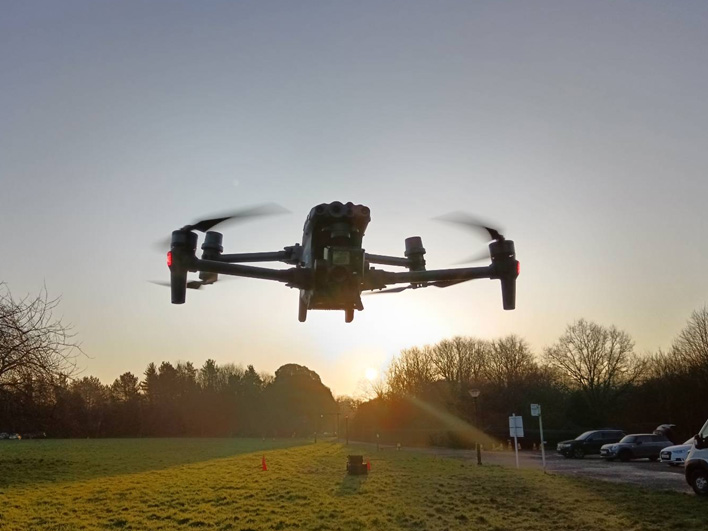
News
From Problems to Possibilities
8 Oct 2025

Our customers are working on cures for cancer, rapid bedside sepsis diagnostics and brain degeneration. It feels very rewarding to be working on things that are better for humanity.”
Science of Happiness
Cheshire-based Laura Earnshaw of myHappymind is cut from similar cloth. Having worked in consultancy and strategic HR for Accenture, AstraZeneca and PwC,
she’s now focused on transforming the education sector’s mental health provision. When she realised her child needed extra support in school, her experience kicked in. “I did a lot of work with them to develop simple habits that had such a huge impact the school rang to ask what I’d done.”
In 2016, she set out to develop myHappymind with a belief that every child has a right to mental wellbeing. “The first thing I did was speak to teachers and research the barriers to support,” she explains. “I picked up on a lack of confidence – teachers just didn’t know how to talk about this stuff and all the materials that did exist felt old school and not user-friendly.”
Earnshaw has created a programme that is accessible to neurodiverse children, those hard of hearing and partially sighted – it is delivered by teachers but there is an app for parents to use too.
Superpowers to Succeed
Barty Walsh’s ORDO is a challenger brand aiming to redefine the market for personal care products.
The first step for Walsh was to disrupt the sonic toothbrush market, which is dominated by Philips and Oral-B. ORDO aims to make high-quality, effective brushes more affordable, while also finding ways to improve children’s oral hygiene. One successful method has been tie-ins with collectable toy brand Squishmallows and, more recently, the Wicked movie franchise. “It’s very boring for kids to brush their teeth,” Walsh says. “We wanted to make something that feels magical but can be used every day.”
Founded in 2019, ORDO has grown 100 to 150 per cent year on year, and its products are sold in Tesco, Argos and Walmart, to name a few. Walsh has achieved this in part by applying the skills he developed as an architect. He says: “Architects try to make a product that makes people feel better.”
When Siôn Roberts left the RAF after 22 years, he could have sat back on his pension. But in 2014 Roberts started Eagle Eye Innovations, with his sights on cutting edge commercial drone tech. New to business, he says, “Naivety is a superpower when you’re starting out – when you’re a bit oblivious, you can take more risks.”
It paid off. This year his Lincoln-based business is set to grow from 51 to 61 staff. Eagle Eye has been applying drone training to everything from TV productions to pest control. It’s even run drone trials for time-critical and sensitive deliveries, in readiness should regulations change.
Innovators Running with AI
How leaders with the nous to deploy artificial intelligence well are finding a new edge.
The AI revolution is marching ahead – the UK is the third largest market for it in the world, after the US and China, and companies across the country are harnessing this power to supercharge their offerings.
When computer science graduate Nick Hutchinson entered the built environment sector, he quickly spotted an opportunity to transform how construction data is used. His company, Glider Technology, uses AI to gather and structure old information about buildings owned by clients such as the Ministry of Defence.
For most asset owners, making digital models of existing buildings is not practical. “Our AI solves this by scanning legacy documents – even old, poorly named files – and converting unstructured data into actionable information,” he explains.
Looking to the future, Hutchinson hopes to see his platform become “part of every building’s fabric”.
Ex-journalists moving into PR is a tale as old as time, but former BBC presenter Omar Hamdi brings with him more than a nose for a good story. “I was into AI before it was fashionable,” he says. “When I graduated from my cognitive science and computing degree many years ago, the theory of AI was there – it just needed more powerful processors.”
Pathos Communications, his company, has built two AI tools to disrupt the PR industry. “AI agent PathosMind can analyse news hooks, scan podcasts and do a deep dive into social media,” Hamdi says. His other tool, virtual publicist Pressella, can attend meetings, flag newsworthy content and turn it into a pitch to present to publications.
“Culture and business-model change is what keeps me excited about the media,” he says.
Elsewhere, Curve Analytics’ Alicia Dean and James Hanson are on a mission to modernise how companies use consumer data. Their business develops advanced AI tools to uncover insights on what consumers are saying about a brand, for example.
They say it’s a privilege to be working in a new space that doesn’t place a premium on decades of experience. Yet the speed of change demands constant re-evaluation.

It’s hard to deliver great work today and futureproof our capabilities at the same time. We’re building the plane while flying it.”

Feeling inspired? Register your interest or put forward a CEO or Founder you know for The LDC Top 50 2026.